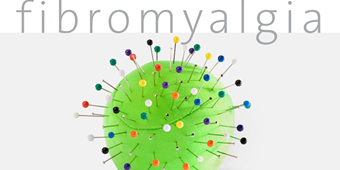Understanding HER2-Positive Breast Cancer

Early detection increases chances of successfully treating breast cancer.
If you’ve been diagnosed with HER2-positive breast cancer, take a deep breath. And keep reading.
All breast cells have a protein called HER2. The protein controls how your cells grow, divide, and repair themselves.
Some women diagnosed with breast cancer — about 1 in 5 — are found to have higher than normal levels of HER2, called HER2-positive. Their HER2 proteins don’t work correctly and cause their breast cancer to grow out of control.
If your breast cancer is HER2-positive, “your cancer will be more aggressive, it can grow rapidly, and unfortunately it can spread to other places in your body quickly,” explains Selyne Samuel, MD, a breast surgeon and breast surgical oncologist. Although HER2-positive cancer is much more common in women, some men with breast cancer are also found to be HER2-positive.
How Is HER2-Positive Diagnosed?
If your doctor suspects you may have breast cancer, it’s likely you’ll have a biopsy of your tumor tissue to learn more about the type of cancer, and to determine if your breast cancer is HER2-positive. Once the tissue is examined, your doctor will know if your HER2 protein levels are higher than normal (indicating your cancer is HER2-positive) or if your HER2 protein levels are normal or lower than normal (indicating your cancer is HER2-negative). “HER2-negative breast cancers don’t behave the same way as HER2-positive breast cancers,” says Dr. Samuel.
Test results help guide the treatment of your disease following surgery. If your test doesn’t provide a clear answer, your doctor may want to take another biopsy.
How Is HER2-Positive Breast Cancer Treated?
Typically, treatment for HER2-positive breast cancer begins with neoadjuvant chemotherapy. “This essentially means you’ll receive chemotherapy before surgery in order to shrink your tumor,” Dr. Samuel explains. Next, you’ll likely have surgery to remove the cancer. Once removed, the cancer will be examined and the stage of the cancer is determined.
Drugs and sometimes radiation are common next steps. Your doctor will determine which treatment is right for you based on:
- The stage and size of your cancer
- Any earlier treatments you may have had and whether those treatments were effective
- Side effects associated with various treatments
- Whether your health insurance favors one treatment over another
Thanks to new drugs developed in recent years, overall survival rates are significantly better for HER2-positive breast cancer than in years past, says Dr. Samuel. “That’s what’s great about research; we’re able to offer effective treatment options now for patients who, years ago, would have had a dismal prognosis.”
If My Breast Cancer Reoccurs, Could They Be Different Types?
Yes, says Dr. Samuel. If you have breast cancer twice, each episode can be different. “For example, you can have HER2-negative breast cancer diagnosed when you’re 50 and then many years later develop a different type of breast cancer that could be HER2-positive.”
Why Mammograms Are the Best Defense
“Breast cancer is now the number one diagnosed cancer worldwide; it has overtaken lung cancer in the United States,” says Dr. Samuel. But more people still die of lung cancer than breast cancer. “Thanks to screening mammograms, we’re able to detect breast cancer early, when it’s more likely to be curable, meaning early detection increases overall survival rates.”
Learn more about screening mammograms and when you should have them.
Click play to watch the video or read video transcript.
Early detection increases chances of successfully treating breast cancer.
Source: Selyne Samuel, MD, Premier Surgical Oncology; Medline Plus; American Cancer Society






